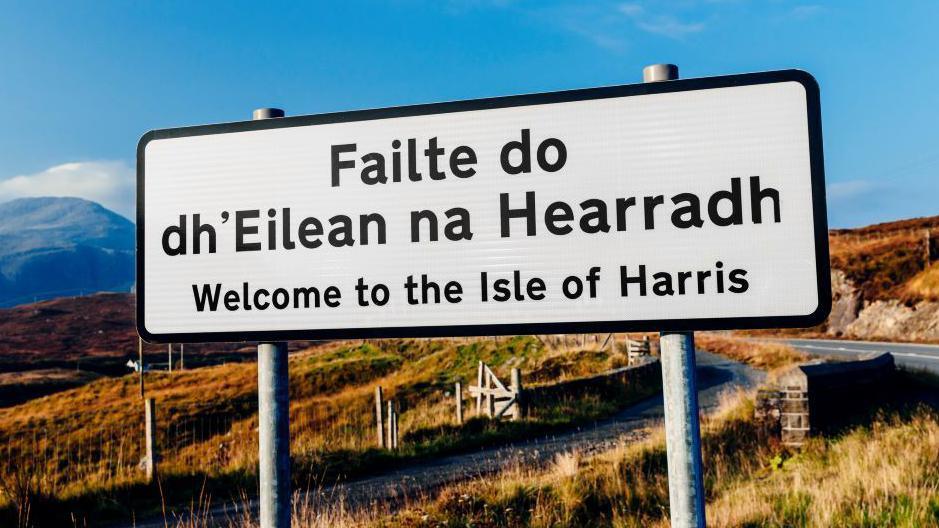New powers proposed to support Gaelic and Scots

The Western Isles is the council area with the most Gaelic speakers in Scotland
At a glance
Scottish local authorities could get new powers to promote Gaelic
The Scottish government is expected to publish a new languages bill around St Andrew's Day later this month
The proposed legislation is also expected to include provisions to promote and protect the use of Scots
- Published
Councils could get the power to designate areas in which the Gaelic language could receive special support, BBC Naidheachdan understands.
The Scottish government is expected to publish a new languages bill around St Andrew's Day later this month.
The proposed legislation is also expected to include provisions to promote and protect the use of Scots.
It is understood the bill will describe Gaelic and Scots as official languages of Scotland alongside English.
Under the new bill, special status could be awarded to areas meeting at least one of the following requirements:
More than 20% of people speak Gaelic
Historical connection to the language
Substantial level of Gaelic activities
substantial level of Gaelic education
It could mean an area could be established in Uist, for example, or in parts of Glasgow.
National Gaelic language plans, which promote the use of Gaelic, look set to be scrapped.
They are to be replaced by new standards on the provision for Gaelic.
Bòrd na Gàidhlig, the main public body in Scotland responsible for promoting Gaelic development, is expected to get new powers to raise concerns if the standards are not met.
However, there will not be a legal right to Gaelic medium education.
According to the 2011 Census, external, more than 57,000 people said they could speak Gaelic.
Council areas with the highest proportion of Gaelic speakers were the Western Ises where 52.3% of the population could speak Gaelic, followed by Highland with 5.4% and Argyll and Bute with 4%.
The census also suggests more than 1.5 million people can speak Scots.
Shetland, Aberdeenshire, Moray and Orkney had the highest proportions of Scots speakers at home.
Help Gaelic flourish
Bòrd na Gàidhlig said it looked forward to engaging with the Scottish Languages Bill once it was officially published and started going through the parliamentary process.
Argyll and Bute Council said it was awaiting further details from the Scottish government, adding that it was committed to helping Gaelic flourish.
Comann nam Pàrant Ghlaschu, group representing parents of children in Gaelic medium education in Glasgow, said it would be disappointed if there was no legal entitlement to Gaelic education.
It added that it was looking forward to reading the whole bill.
A Scottish government spokesperson said: "The Scottish Languages Bill has been announced in Programme for Government and will be introduced to parliament before the end of the current parliamentary session."
- Published22 September 2023

- Published10 November 2022
